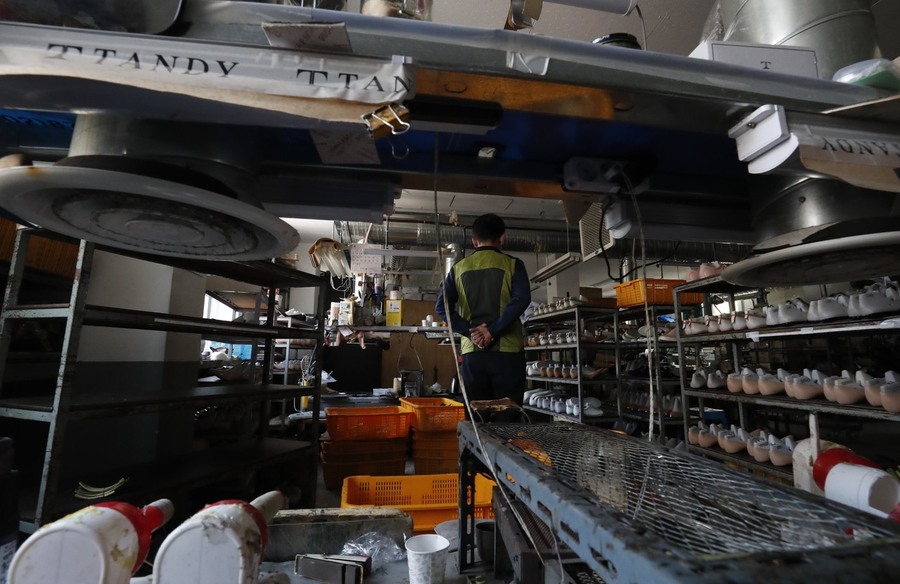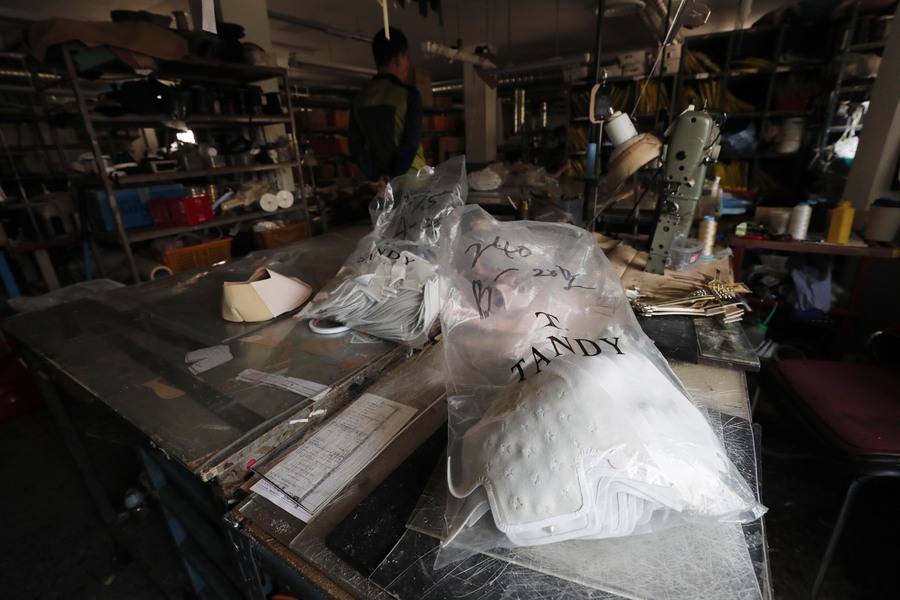 |
|
98 shoemakers of the shoe company Tandy have been on strike since Apr. 6. The company factory in the Gwanak district of Seoul is shown on Apr. 16, the 10th day of the strike. (by Park Jong-shik, staff photographer)
|
The company is employing shoemakers as subcontractors in order to save on labor costs
Kim Yong-il (49), a shoemaker for Korea's renowned Tandy brand of handmade shoes, cannot forget the year 2000. That was the year when most footwear manufacturers turned their shoemakers into subcontractors, making them "small business owners," in the name of reducing labor costs. Shoemakers who had been working as regular employees paying income tax suddenly became "small business owners." In order to avoid having to register for a business license, Kim resigned and went to work for a small-scale enterprise, but in 2003 even that became difficult. Kim recalls, "It was impossible to continue working in the shoe business without having my own operation." Now after 15 years as the head of his own company, he is out on the street again, looking for work. On April 16, the Seoul Regional Shoemakers' Union of the Korean Confederation of Trade Unions announced that 98 of Tandy's subcontractors have been on strike since April 6. Jeong Gi-man, leader of the regional union, explains the reason for the strike: "Though the courts have ruled that shoemakers working as subcontractors are in fact laborers, the system of regarding them as small business owners remains in place. Tandy treats its shoemakers as slaves while raking in money from their labor." In January 2017, nine shoemakers who retired from Tandy sued the company for their severance pay and won the case when the court recognized their status as laborers. The Seoul Regional Shoemakers' Union's demand is clear: Tandy should get rid of the sham subcontractor system and directly hire the shoemakers. Though they fulfill all of Tandy's orders for shoes, they are denied the standard benefits of annual paid leave, the national pension, health insurance, unemployment insurance, workers’ compensation, and severance pay. Their pay per pair of shoes has remained at 6,500 won (US$6) for eight years with no means of renegotiating with the company. Powerless to resist Tandy's high-handed push, Bak Wan-gyu (49), with 32 years of experience as a shoemaker, also had to succumb to the subcontracting scheme. He says, "If we were regular employees instead of subcontractors, we would enjoy the protection of the labor laws and could negotiate for higher wages and would be eligible for severance pay." He emphasizes that it is urgent that their status as laborers be acknowledged so that they can solve the problems of low pay and excessive overtime work. Far from being able to demand improved working conditions, the shoemakers are forced to restrain themselves lest they incur Tandy's displeasure. Bak adds, "I suffered a big loss two years ago for objecting to the company's docking my pay 300,000 won (US$280) for one defective pair of shoes. I can produce 25 pairs a day, but they gave me orders for only 5 pairs a day."
 |
|
Raw materials are piled up on a workbench in the Tandy shoe factory in the Gwanak district of Seoul on Apr. 16. (by Park Jong-shik, staff photographer)
|







